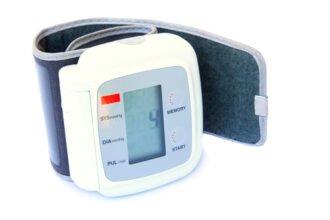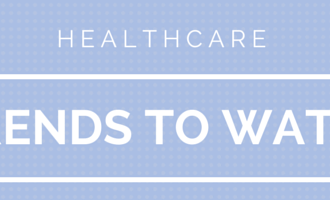Wearable health devices are looked at as the next big frontier in technology, where many of the new and most intriguing advances are expected to take place over the coming years. While some wearables might not be taking off like some thought they would, wearable health devices are a different matter. These devices continue to be some of the most popular new devices on the market, with the number predicted to grow to 170 million devices sold by 2017. This should not come as a surprise considering how much consumers are eager for that next great solution designed to help them get healthy. Wearable health devices can track our activities, from how many steps we take to how many hours we sleep to even how many calories we consume. As exciting and promising as wearable health devices are, the question still remains over whether they actually help people get healthier. While we’re still in the beginning stages of adopting these devices, at the moment, it appears like they have minimal effect on improving health.
To be sure, wearable health devices can provide incredibly detailed information about every user’s habits during the day. That data can be relayed to the consumer, helping them get a better picture of what they’re overall health is like. All that new data can certainly be put to good use if people are willing to take all the information into account and change up their behaviors. Of course, that requires more effort on the part of the user than simply wearing the device on their wrist, and that’s where the biggest holdup appears to be. People can receive all the health data they want; if they don’t put the data to good use, the device is pretty much pointless. The effectiveness of a wearable health devices is contingent upon how the user actually utilizes it to make the changes in his or her life that will lead to healthier outcomes. If no changes occur, a wearable health band is nothing more than a really fancy and expensive bracelet.
It almost goes without saying that to actually get the most out of a wearable health device, one must actually use it, but many consumers don’t seem to be doing this. Like that gym membership that is quickly forgotten about after a few months, studies have shown that people are just as likely to give up on their health wearables. Some reports indicate people lose interest in their devices after only six months, probably because they haven’t instantly realized better health results. Other studies show an even bleaker picture, with people tossing aside their wearable health devices only two months after purchasing them. While these devices may be used to achieve a healthier lifestyle, they do people little good if they aren’t used.
Even in those instances where people are determined to put their devices to good use and change their behavior, wearables can only go so far. A health device may show data that a user isn’t getting enough sleep at night, but it does not tell them how they can get a higher quality night’s rest. Or devices may show someone how many steps they’re walking each day, but it gives no indication on how they might improve on that or what those improvements will actually mean in the long run. Many health devices leave it up to the user to determine how best to interpret the data, which leaves a lot of people scratching their heads in confusion. That may be one of the reasons people are so quick to ditch their devices.
Ultimately, wearable health devices should not be looked at as the special cure-all that will solve everybody’s health woes. They are only tools, and like any tool, they should be used in conjunction with other helpful devices and expert help to achieve a desired goal. People can share data from their devices with their doctors to get a better idea of where and what they need to improve. Designers and developers are also working to make wearable health devices more functional and accessible to users, making it so they provide more valuable insight on their health. In this age of smartphones, data analytics tools, Internet of Things, and BYOD, it’s no surprise that people expect quick solutions from new devices, but they need to understand health wearables are just one ingredient that should be used on the path to a healthier life.









